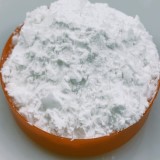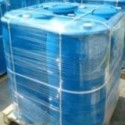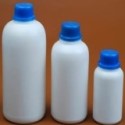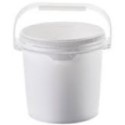 |
Calcium Gluceptate or Calcium Glucoheptonate SDS Safety Data Sheet of Supplier Exporter Manufacturers' Representative |
Email: info@ammol.org |
Call Toll Free +1-855-552-6665 |
Calcium Gluceptate or Calcium Glucoheptonate
CAS Number: 29039-00-7 or 17140-60-2
Molecular Formula: C14H26CaO16
Molecular Weight: 490.42

Calcium Gluceptate or Calcium Glucoheptonate
Calcium Gluceptate or Calcium Glucoheptonate SDS, Safety Data Sheet
MSDS Sheet, Material Safety Data Sheet 07-Feb-25
Section 1: Chemical Product and Company Identification
Product Name & Other Names: Calcium gluceptate or Calcium glucoheptonate or Glucoheptonic acid, calcium.
CAS Number: 29039-00-7 or 17140-60-2
EINECS EC Code: --
Relevant uses and uses advised against (if any): Industrial Manufacturing
Supplier: As per letterhead.
Section 2: Hazards Identification
GHS, Globally Harmonized System Classification in accordance with 29 CFR 1910
Classification according to Regulation (EC) No 1272/2008
Not a hazardous substance or mixture according to Regulation (EC) No. 1272/2008.
This substance is not classified as dangerous according to Directive 67/548/EEC.
Labeling according to GHS & Regulation (EC) No 1272/2008
GHS Label Elements NONE |
Signal Word: None
Precautionary statements:
P261: Avoid breathing dust/fume/gas/mist/vapors/spray.
P262: Do not get in eyes, on skin, or on clothing.
P281: Use personal protective equipment as required.
P303+P361+P353: IF ON SKIN (or hair): Remove/Take off immediately all contaminated clothing. Rinse skin with water/shower.
P304+P340: IF INHALED: Remove victim to fresh air and keep at rest in a position comfortable for breathing.
P305+P351+P338: IF IN EYES: Rinse cautiously with water for several minutes. Remove contact lenses, if present and easy to do. Continue rinsing.
P337+313: If eye irritation persists get medical advice/attention.
Section 3: Composition and Information on Ingredients
Product Name & Other Names: Calcium gluceptate or Calcium glucoheptonate or Glucoheptonic acid, calcium.
CAS Number: 29039-00-7 (also quoted is 17140-60-2)
Section 4: First Aid Measures
Always seek medical advice after the first aid treatment.
Skin: Rinse with water. Soap may be used. Seek Medical Aid.
Eyes: Wash eyes with plenty of water for at least 15 minutes, lifting lids occasionally. Seek Medical Aid.
Inhalation: Remove to fresh air. If not breathing, give artificial respiration. If breathing is difficult, give oxygen.
Ingestion: If swallowed, induce vomiting immediately after giving two glasses of water. Never give anything by mouth to an unconscious person.
Section 5: Fire and Explosion Data
Flammability of the Product: Like all organic substances it can catch fire at elevated temperature.
Flash Points: Not applicable.
Products of Combustion: Calcium oxide, Fumes and Oxides of carbon.
Fire Fighting Media and Instructions: Use water spray, alcohol-resistant foam, dry chemical or carbon dioxide. Avoid solid water jet as it can scatter the fire.
Section 6: Accidental Release Measures
Personal precautions, protective equipment, and emergency procedures: Ventilate area of leak or spill. Avoid breathing dust/fumes/gas/mist/vapors/spray. Use individual protective equipment (waterproof boots, suitable protective clothing, safety glasses, etc.).
Environmental precautions: Do not let the product enter drains, soil, or water sources.
Methods and materials used for containment Cleanup procedures and Storage:
Small Spill: Use appropriate tools to put the spilled solid in a convenient waste disposal container.
Large Spill: Contain spilled material. Cover with an inert, non-combustible absorbent material, (e.g. sand, earth, diatomaceous earth, vermiculite). Vacuum or sweep-up and remove to an approved disposal container.
Section 7: Handling and Storage
Precautions for safe handling: Apply according to good manufacturing and industrial hygiene practices. Ensure proper ventilation. In case of insufficient ventilation, wear suitable respiratory equipment. Wash thoroughly after handling. Do not drink, eat, or smoke while handling. Avoid contact with skin, eyes, and clothing. Minimize dust generation. Avoid breathing dust/fumes/gas/mist/vapors/spray. Keep container tightly closed. Avoid ingestion and inhalation. Use individual protective equipment (waterproof boots, suitable protective clothing, safety glasses, etc.).
Conditions for safe storage, including any incompatibilities: Store in cool, dry, and ventilated area away from heat sources and protected from sunlight in tightly closed original container. Keep air contact to a minimum. Store protected from heat, sparks and ignition sources and incompatible materials. Avoid inhalation of dust/mist/vapor. Do not store with incompatible materials like strong oxidizing agents, bases, amines, reducing agents, acids, acid anhydrides.
Section 8: Exposure Controls/Personal Protection
Engineering Controls: Use process enclosures, local exhaust ventilation, or other engineering controls to keep airborne levels below recommended exposure limits.
Personal Protection: Safety glasses. Lab coat. Dust respirator. Be sure to use an approved/certified respirator or equivalent Gloves.
Personal Protection in Case of a Large Spill: Splash goggles. Full suit. Dust respirator. Boots. Gloves. A self-contained breathing apparatus should be used to avoid inhalation of the product.
Section 9: Physical and Chemical Properties
Appearance: Solid
Odor: No information found.
Odor threshold: No information found.
pH: No information found.
Relative density: No information found.
Melting point/freezing point: No information found.
Initial boiling point and boiling range: No information found.
Flash point: No information found.
Auto-ignition temperature: No information found.
Decomposition temperature : 200C
Upper/lower flammability or explosive limits: No information found.
Vapor pressure: No information found.
Vapor density: No information found.
Evaporation rate: No information found.
Flammability (solid, gas): No information found.
Partition coefficient: n-octanol/water: No information found.
Solubility: Soluble in cold water.
Viscosity: No information found.
Section 10: Stability and Reactivity Data
Stability: It is stable.
Conditions of instability: Incompatible materials
Incompatibility with various substances: Heat, light, strong oxidizing agents, bases, amines, reducing agents, acids, acid anhydrides.
Polymerization: Will not occur.
Section 11: Toxicological Information
Toxicity to Animals: No information found.
Carcinogenic Effects: Not a reported carcinogen by IARC, NTP, ACGIH, OSHA.
Mutagenic Effects: No information found.
Teratogenic Effects: No information found.
Developmental Toxicity: No information found.
Reproductive Effects: No information found.
Section 12: Ecological Information
Ecotoxicity: The product is not considered harmful to aquatic organisms or to cause long-term adverse effects in the environment. Not dangerous for the ozone layer.
Persistence and Degradability: Unlikely to persist due to water solubility.
Mobility: Likely to be mobile due to water solubility.
Bioaccumulation/ Accumulation: No information found.
Results of PBT and vPvB assessment: No information found for assessment.
Section 13: Disposal Considerations
Waste Disposal: Waste must be disposed of in accordance with federal, state, and local environmental control regulations. Follow all the pollution control regulations.
Section 14: Transport Information
DOT (USA) & ADR/RID: regulated.
IMDG: Not regulated.
IATA: Not regulated.
Section 15: Other Regulatory Information
No further information found.
Section 16 - Additional InformationDISCLAIMER: The information and recommendations set forth herein are presented in good faith and believed correct as of the date hereof. It is compiled from various sources and it is not necessarily all inclusive nor fully adequate in every circumstance. In addition, these suggestions should not be confused with nor followed in violation of applicable laws, regulations, rules or insurance requirements applicable. This MSDS sheet is intended only as a guide to the appropriate precautionary handling of the material by a properly trained person using this product. Individuals receiving the information must exercise their independent judgment in determining its appropriateness for a particular purpose.
Please visit Main Page of Calcium Gluceptate or Calcium Glucoheptonate Suppliers.
American Molecules, also known as ammol.org is a distributor, supplier and manufacturers' representative of all types of Pharmaceuticals, Functional Ingredients, Excipients and Specialty Chemicals in Texas USA. Our principals manufacture supply and export USP NF BP, Ph Eur, etc grades of chemicals pure and reagent grade, mineral fortifiers, FCC food grade. Tailor made particle size and customized specifications are offered. The principal's facility is having one or more of the certifications like FDA approval and GLP, cGMP, ISO9001, ISO14001, ISO/IEC 17025, ISO22000, FSSC 22000, ISO45001, FSSAI, Kosher, HALAL, COPP, WHO-GMP certified and Written Confirmation (WC) for export to Europe is available. The manufacturers suppliers and exporters observe WHO Good Manufacturing Practices and Good Laboratory Practices.





Suppliers and Manufacturers' Representative:

9910 Bent Oak Dr
Houston, TX 77040, USA
Call Toll Free: 1-855-55-AMMOL 1-855-552-6665
Email: info@ammol.org